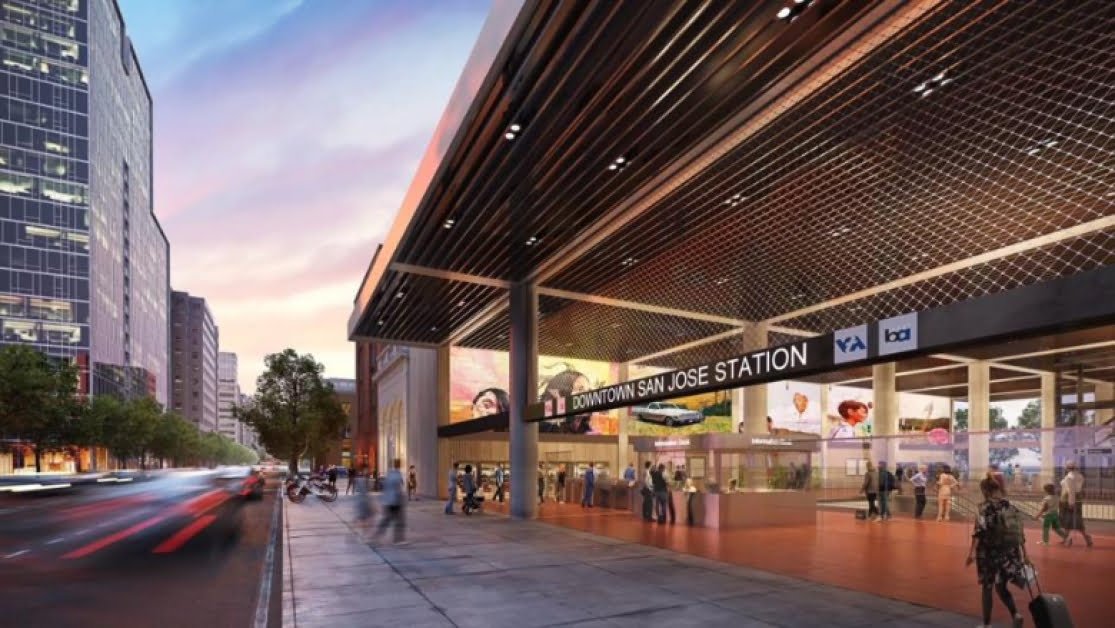Bechtel, a renowned global company specializing in engineering and construction, has been appointed as the construction manager for the ambitious $12.7 billion single-bore Bay Area Rapid Transit (BART) extension project. This significant infrastructure initiative is set to transform the transportation landscape in the Bay Area, offering faster and more effective commuting options for the region’s residents. With Bechtel leading the way, the project’s success is highly probable, given the company’s unparalleled expertise and proven track record of delivering complex projects on schedule and within budget. Let’s explore this groundbreaking development further and uncover the essential details of this monumental undertaking.
Advancing the Bay Area Rapid Transit service into Silicon Valley has taken a significant step forward with the Santa Clara Valley Transportation Authority’s (VTA) award of a $490.8 million contract for construction management services to Bechtel Infrastructure Corp. Early work has commenced as officials at VTA aim to commence major construction and tunneling for the $12.7 billion BART Silicon Valley Part II Extension Project in 2026.
The planned 6-mile extension will incorporate four stations, three of which will feature underground platforms. A significant portion of approximately 5.5 miles of the extension is slated to be tunneled, with VTA proposing the first single-bore subway tunnel in the United States. Additionally, the project includes the construction of a train maintenance and storage facility, along with various related services.
To facilitate the tunneling process, VTA has acquired a 54-feet-diameter Tunnel Boring Machine (TBM) from a German manufacturer, Herrenknecht. The TBM is scheduled to begin operations at the west portal near the Santa Clara terminus of the extension, digging at a rate of 30-40 feet per day. The $76 million TBM is expected to be delivered next year, with 24/7 tunneling estimated to take three to four years to complete.
Building on the success of the $2.3 billion, 10-mile Phase 1 completed in 2020, which extended BART service to Berryessa/North San Jose, Phase II will further extend the line with stops at twenty-eighth Avenue/Little Portugal, Downtown San Jose, Diridon Station, and Santa Clara. VTA’s objective is to offer efficient, sustainable transit options that cater to the evolving needs of the growing communities in the region, as stated by Carolyn Gonot, VTA’s General Manager and CEO, during a recent groundbreaking ceremony.
As the construction manager, Bechtel will oversee four key contract packages: systems; tunnel and track work; construction of the Newhall Yard maintenance facility, Santa Clara Station, and parking structure; and construction of the three underground stations. For the initial phase of tunnel and track work, VTA had previously selected a joint venture consisting of Kiewit Infrastructure West, JF Shea Construction, and Traylor Brothers. Several other firms vied for the contract, including Arcadis U.S. Inc., Bay Area Connectors, and HDR Construction Management Corp., according to VTA.
Passenger service is projected to commence in 2037, with VTA estimating that the Phase II extension will accommodate 54,600 passengers on weekdays by 2040. The VTA board approved a ten-year cost-plus-fixed-fee construction management services contract with Bechtel in April. Bechtel’s involvement in designing and constructing the original BART system in the 1960s and overseeing work on Phase I of the Silicon Valley Line underscores their expertise in managing such projects.
Kelvin Sims, Senior Vice President of Bechtel Infrastructure Corp., highlighted the significance of the new rail extension in providing a swift and efficient transit alternative for major travel corridors. Bechtel has already lined up 15 subcontractors, with 11 of them being disadvantaged business enterprises, meeting a 12% Disadvantaged Business Enterprise (DBE) goal for the contract.
Funding for the project is expected to exceed $6 billion from the Federal Transit Administration, with additional contributions from various local, regional, and state sources. Officials anticipate finalizing a comprehensive funding grant agreement with FTA later this year, ensuring the project’s financial viability and successful completion.


